第119章 LII.(3)
He perceived that he owed no formal response to the sentimental insincerities of Mrs. Vostrand's letter, and he decided to write to Durgin himself, and to put the case altogether in his hands. If Durgin chose to show the Vostrands what he should write, very well; if he chose not to show it, then Westover's apparent silence would be a sufficient reply to Mrs. Vostrand's appeal.
"I prefer to address you," he began, "because I do not choose to let you think that I have any feeling to indulge against you, and because I do not think I have the right to take you out of your own keeping in any way. You would be in my keeping if I did, and I do not wish that, not only because it would be a bother to me, but because it would be a wrong to you.
"Mrs. Vostrand, whose letter to me I will leave you to answer by showing her this, or in any other manner you choose, tells me you do not want me to spare the truth concerning you. I have never been quite certain what the truth was concerning you; you know that better than I do; and I do not propose to write your biography here.
But I will remind you of a few things.
"The first day I saw you, I caught you amusing yourself with the terror of two little children, and I had the pleasure of cuffing you for it. But you were only a boy then, and afterward you behaved so well that I decided you were not so much cruel as thoughtlessly mischievous. When you had done all you could to lead me to this favorable conclusion, you suddenly turned and avenged yourself on me, so far as you could, for the help I had given the little ones against you. I never greatly blamed you for that, for I decided that you had a vindictive temperament, and that you were not responsible for your temperament, but only for your character.
"In your first year at Harvard your associations were bad, and your conduct generally was so bad that you were suspended. You were arrested with other rowdy students, and passed the night in a police station. I believe you were justly acquitted of any specific offence, and I always believed that if you had experienced greater kindness socially during your first year in college you would have been a better man.
"You seem to have told Mrs. Vostrand of your engagement, and I will not speak of that. It was creditable to you that so wise and good a girl as your betrothed should have trusted you, and I do not know that it was against you that another girl who was neither wise nor good should have trusted you at the same time. You broke with the last, because you had to choose between the two; and, so far as Iknow, you accepted with a due sense of your faithlessness your dismissal by the first. In this connection I must remind you that while you were doing your best to make the party to your second engagement believe that you were in love with her, you got her brother, an habitual inebriate, drunk, and were, so far, instrumental in breaking down the weak will with which he was struggling against his propensity. It is only fair to you that Ishould add that you persuaded me you got him only a little drunker than he already got himself, and that you meant to have looked after him, but forgot him in your preoccupation with his sister.
"I do not know what took place between you and these people after you broke your engagement with the sister, until your encounter with the brother in Whitwell's Clearing, and I know of this only at second hand. I can well believe that you had some real or fancied injury to pay off; and I give you all the credit you may wish to claim for sparing him at last. For one of your vindictive temperament it must have been difficult.
"I have told you the worst things I know of you, and I do not pretend to know them more than superficially. I am not asked to judge you, and I will not. You must be your own judge. You are to decide whether these and other acts of yours are the acts of a man good enough to be intrusted with the happiness of a woman who has already been very unhappy.
"You have sometimes, however--oftener than I wished--come to me for advice, and I now offer you some advice voluntarily. Do not suppose that because you love this woman, as you believe, you are fit to be the keeper of her future. Ask yourself how you have dealt hitherto with those who have loved you, and whom in a sort you loved, and do not go further unless the answer is such as you can fully and faithfully report to the woman you wish to marry. What you have made yourself you will be to the end. You once called me an idealist, and perhaps you will call this idealism. I will only add, and I will give the last word in your defence, you alone know what you are."